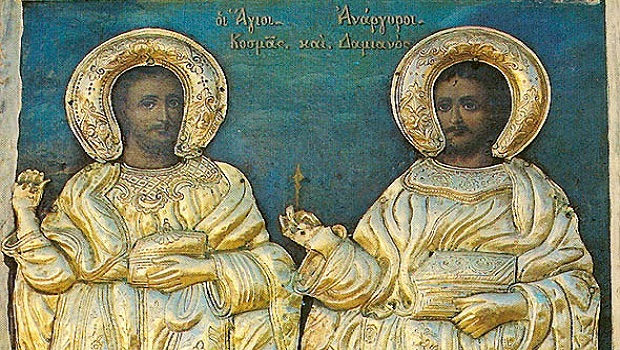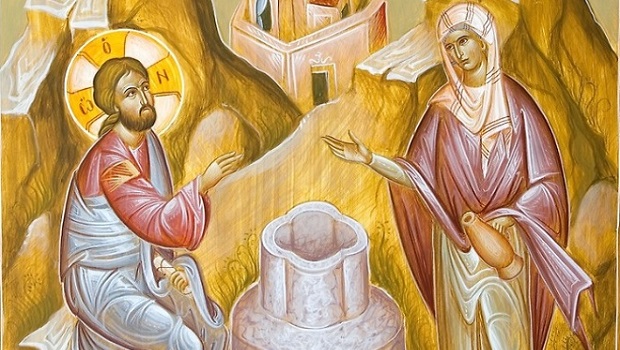In times of great fear, need and uncertainty throughout history we have found ourselves going to visit our priests and doctors. It makes sense to look at the history of the church to learn about how people dealt with these issues and those who stood out as paragons of virtue. We are sharing this story of tremendous saints of our faith who met the challenges of their times with their Christian witness. A great true story probably unparalleled in human history. -Fr Chris Metropulos
George Poulos
Christianity flourished in antiquity in the face of seemingly insurmountable odds. In defiance of odds of a different kind, the odds of chance, a pair of physician brothers came into the service of Christ. Less than five hundred years later they were followed by two different sets of brothers of identical n ame and purpose in the service of the Lord. The result is that all six have become saints of the Church. Evidence of divine purpose in this succession of saints demonstrates that the precise science of mathematical probabilities has a hand in the spiritual affairs of mankind.
The original pair of brothers were born Cosmas and Damian during the early years of the Christian Church. They were raised in comfortable circumstances in a comparatively wealthy family which saw to their thorough training of mind and body in Asia Minor. Endowed with keen intellect, the brothers became inseparable in common pursuit of the science of medicine. Both firmly believed that “of the most high cometh healing” and were aided in their work by religious devotion. As students they vowed to supply their medical skill without charge to a suffering Christian community and thereby prince and pauper alike were to feel the balm of their healing art.
Dubbed the “unmercenaries” for their refusal to accept money for their services, they also came to be acknowledged as miracle workers for the remarkable cures they were able to effect. Their parents’ estate had provided for their well being, but it was to last them only through strict austerity; they could not afford any of the comforts which could have been theirs if they had chosen to charge their patients for their services.

As time went on, the brothers’ love of the Savior became more and more evident, subordinating even their great devotion to medical science. The word miracle had a literal meaning for their great work as physicians, for only through the power of the Lord could they have brought about such healing of those afflicted with serious and often terminal illnesses.
Such was the veneration in which the brothers were held in their own lifetime that they remained unchallenged by even the most avowed pagan enemies of Christianity. They carried on their work for God and man all the years of their lives, which were full, and they died peacefully of natural causes quite unlike the saints who were to die for Christ in agony. It is not uncommon for parents to name children for someone dear to them or for some great figure in the Church. In keeping with this tradition, a pair of brothers of a wealthy Roman family were named Cosmas and Damian in honor of the master physicians and saints of Asia Minor. The lives of this second pair of saints with identical names paralleled those of the original pair. They emulated their predecessors in every detail and were also venerated in their own lifetime as miracle working physicians and men of God. The similarity ends, however, with the manner of their death, because the hostile Romans did not allow them to lead their lives to the fullest in the service of God, and they suffered martyrdom at the hands of their enemies.
A third pair of physician saints appeared in ancient Arabia, and remarkably enough they were named Cosmas and Damian. The lives of this third pair are not detailed in any extant accounts of the saints, but it is known that they also served in the manner of the original saints and that they were martyred in the manner of the second pair. The original saints Cosmas and Damian are honored on the feast day of Nov. I; the second pair of saints on July I, and the third pair on October 17.
Source: pemptousia.com




0 Comments